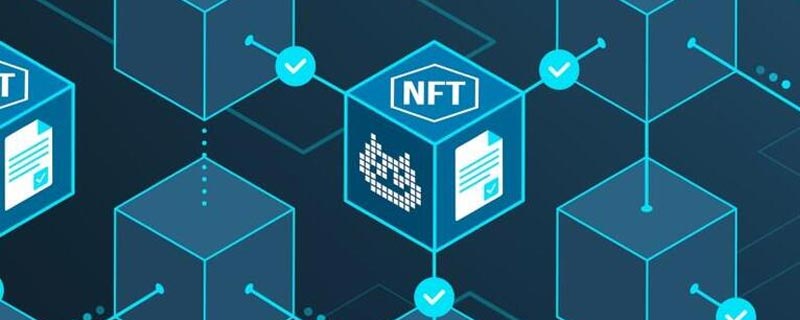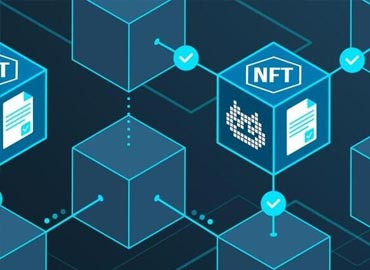An NFT stands for non-fungible token. This term means that it is unique and cannot be replaced with something else. As a cryptocurrency, a bitcoin, for example, is fungible. This means that you could trade one bitcoin for another one and you'll have the exact same thing. A non-fungible token could be a one-of-a-kind trading card though. Since this is completely unique, you can't replace it or trade it for something that's exactly the same. If you traded that card for a different one, you would have something that was completely different.
In general, NFTs can be anything digital and usually refers to NFTs as a part of the Ethereum blockchain. Ethereum is a type of cryptocurrency similar to bitcoin. However, its blockchain supports NFTs which store additional information that makes them work differently than a bitcoin. It's worth knowing that other blockchains can also develop their own versions of NFTs and some already have done this.
What is an NFT Token?
An NFT token can be almost anything. However, they may be easily thought of as being similar to certificates of authenticity for digital artifacts. They're currently used to sell virtual collectibles such as virtual trading cards, music or video clips, virtual real estate, and even video art. Cryptocurrencies have grown in popularity over the past few years.
Every token is going to be stored on a blockchain, usually Ethereum. Anyone who is interested in these tokens can track them as they are created and sold. Since they use a smart contract technology, the NFT can also be set up so that the original artist will continue to receive a percentage of the sales when the token is resold.
What makes this desirable for some artists is that they want to continue receiving credit for their work. Digital artifacts in the past could be copied endlessly and pasted, without providing any additional revenue to the original artist or creator. An artist who creates a digital piece of art can continue to receive revenue whenever it changes hands. If the piece is kept by the original owner, they will not receive any additional income.
What is an NFT Asset?
An NFT may also be referred to as an asset. This simply means that the NFT is a unique digital asset that represents ownership or a real-world item such as art, music, video clips, and more. While some NFTs have sold for millions, they are also speculative assets which may or not be appropriate for every investor. For example, in the first part of 2021, NFTs for digital artwork sold for millions of dollars. The total NFT sales were $2.5 billion in the first six months of 2021.
Some example of NFT assets may be best seen in the art world. The digital artist, Beeple sold his piece "Everydays- the First 5000 Days" through a Christie's auction for $69.3 million dollars. Although another collector could attempt to recreate or copy the piece but the original one will be owned by the NFT buyer. An asset that may be more challenging to understand would be items such as tweets. The CEO of Twitter, Jack Dorsey, auctioned an NFT of his first tweet for a few million dollars. While anyone could make a copy of the item that he sold, the buyer owns the original which may end up being more valuable.
Purchasing and Selling NFTs
Depending on the specifics of each non-fungible token, the licensing or copyright rights may not always come with the purchase. As the concept and technology surrounding NFTs changes, there are many potential applications that go beyond purchasing and owning digital work. One example is that a school could issue an NFT to students so that employers could verify their education. As this technology grows and develops over time, it's likely that NFTs will become more common in society today. People may use them for a variety of purposes in the future.




